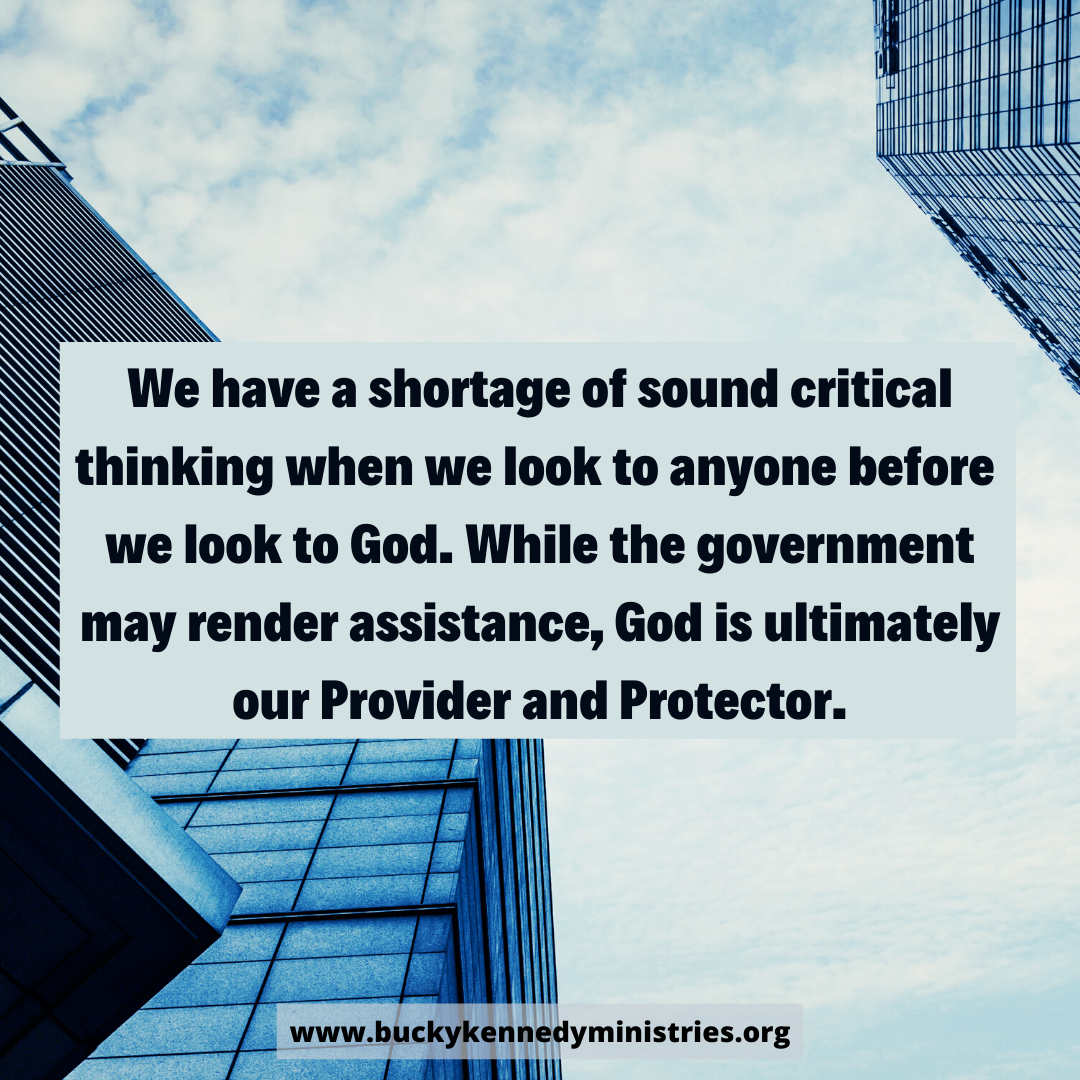As our country approaches post-quarantine life, I’m noticing a shortage of sound critical thinking. Rather than objectively analyzing the issues, many Americans are just reacting to salacious headlines. It’s no secret that most news organizations try to influence more than inform. They’ve politicized every issue for years, presenting their point of view as absolute truth. So, of course the same is happening with the handling of the COVID-19 pandemic as well as discussing possible ways to move forward.
Critical thinking requires facts. But because Americans are more prone to think politically than critically, people are suspicious of information not distributed or endorsed by their political party. As a result, we live in a culture of skepticism and mistrust. How do we move forward when we don’t know who to trust? Well, as believers, we should evaluate everything through the lens of Scripture so our thoughts are guided by God.
Look to God before looking to government.
First and foremost, we should trust the Lord. That sounds like a pat answer but it’s not. Multitudes of people are facing various kinds of sudden loss. Many are learning what it means to trust the Lord the way Isaiah spoke of, “The steadfast of mind You will keep in perfect peace, because he trusts in You” (26:3). It’s believing that the One who created all things never needs to call an emergency session of the Trinity. It’s how Job expressed his faith after the greatest storm of his life, “Though He slay me, yet will I trust in Him.”
We have a shortage of sound critical thinking when we look to anyone before we look to God. While the government may render assistance, God is ultimately our Provider and Protector. Please don’t misunderstand me. Thinking critically is not a call to anarchy or to live independent of civil authority. That would be reckless and unbiblical. We respect their God-given authority while relying on God alone.
Think biblically before thinking politically.
The Bible has a lot to say about how we should think and where our minds should focus. For instance, “Set your mind on the things above, not on the things that are on earth” (Colossians 3:2). That’s thinking biblically; like Jesus thought when He walked the earth. He used Scripture to defeat the devil and to answer His critics. He used Scripture to discern the spiritual temperature of the culture. And He relied on Scripture to shape and inform His decisions.
Our political affiliations should certainly fall in line with God’s Word. It’s a matter of prioritizing the biblical over the political. Thinking biblically provides the clarity to evaluate both the issues and our circumstances outside the persuasion of politics. We hinder sound critical thinking if we hold the party line before we hold to the truths of Scripture.
Put sound critical thinking into practice.
So, how do we put sound critical thinking into practice in the coming weeks? Well, as businesses open up and people move around more, we’re not all going to respond the same way. Nor will we agree on the how, when, and why of those things. For instance, if something about a particular business concerns me, then I need to act accordingly without second-guessing the decision of others.
Practicing sound critical thinking means understanding the risks, then making decisions based on the facts we have. To quote my parents, “There comes a time when you have to use the brain that God gave you.” We can seek out the facts without giving in to the fear of hyped-up headlines. And we can listen objectively to government leaders without either undue skepticism or blind allegiance. As we trust God and believe His Word, the decisions we face take on an eternal perspective. In my experience, that means more critical thinking and less critical talking.
